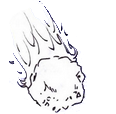 It’s pretty obvious that America’s political landscape is deeply “tribal” right now. So great is the animus between elected leaders, they can barely muster the immature level of cooperation that exists on the average kindergarten playground, even when the America’s future rests on it. And it’s not just elected leadership, this tribalism is increasingly evident among average Americans too, as journalist Bill Bishop stumbled on accidentally when doing demographic research. He documents the trend in his book The Big Sort: How the Clustering of Likeminded America is Tearing Us Apart.
It’s pretty obvious that America’s political landscape is deeply “tribal” right now. So great is the animus between elected leaders, they can barely muster the immature level of cooperation that exists on the average kindergarten playground, even when the America’s future rests on it. And it’s not just elected leadership, this tribalism is increasingly evident among average Americans too, as journalist Bill Bishop stumbled on accidentally when doing demographic research. He documents the trend in his book The Big Sort: How the Clustering of Likeminded America is Tearing Us Apart.
Inside each tribe, we consider ourselves the moral actors – the ones doing the right thing in the match-up between good and evil. Our moral compasses bind us to the people in our tribe we trust, rely on and find common cause with. Aside from Dr. Evil, few of us side with “bad” things done in the world. Surely that’s a start?
But the rub is this human quality of groupishness can really distort our accuracy in assessing reality – and thus can veer us off-course in taking moral action. Studies show that inside the “teams,” extremism thrives even to the point of believing things that are factually untrue. Just look at the other tribe to see the dynamic in action (it’s hard to see in your own). Yes… MORALITY BLINDS. It blinds us to seeing things our team doesn’t see. It’s like the mass delusion in the movie “The Matrix.” It’s what makes it so an “asteroid” can be barreling toward earth and about half of us just don’t see it coming.
What you may not know is that the human tendency to be tribal can also be credited with the incredible accomplishments of mankind – we are unique among animals in our ability to work in cooperation with others beyond our kinship ties. Jonathan Haidt writes in The Righteous Mind: Why Good People are Divided by Politics & Religion:
Our tribal minds make it easy to divide us, but without our long period of tribal living there‘d be nothing to divide in the first place. There‘d be only small families of foragers—not nearly as sociable as today‘s hunter-gatherers—eking out a living and losing most of their members to starvation during every prolonged drought. The coevolution of tribal minds and tribal cultures didn‘t just prepare us for war; it also prepared us for far more peaceful coexistence within our groups, and, in modern times, for cooperation on a vast scale as well.
MORALITY ALSO BINDS. Our tribes serve a function, even in politics. Our founders understood our allegiances carried authority with them and built a system of governance around the checks, balances & and pressure of opposing forces and ideas. They considered what James Madison called “the constant clashing of opinion” healthy – and a critical protection against tyranny. But they expected that these groups of people would engage – they’d fight the good fight, and cooperate uneasily as a part of how America works.
Perhaps understanding our basic tribal nature – and that morality both binds us together and can blind us to reality – is the key to understanding how we have to work inside our human contraints. When we’re looking up at the sky – at our future – we’ve got to realize that some people might see “asteroids” better than we do. And we’ve got to find a way to see others as legitimate partners in protecting our future. You know, as members of the same Asteroids Club.





